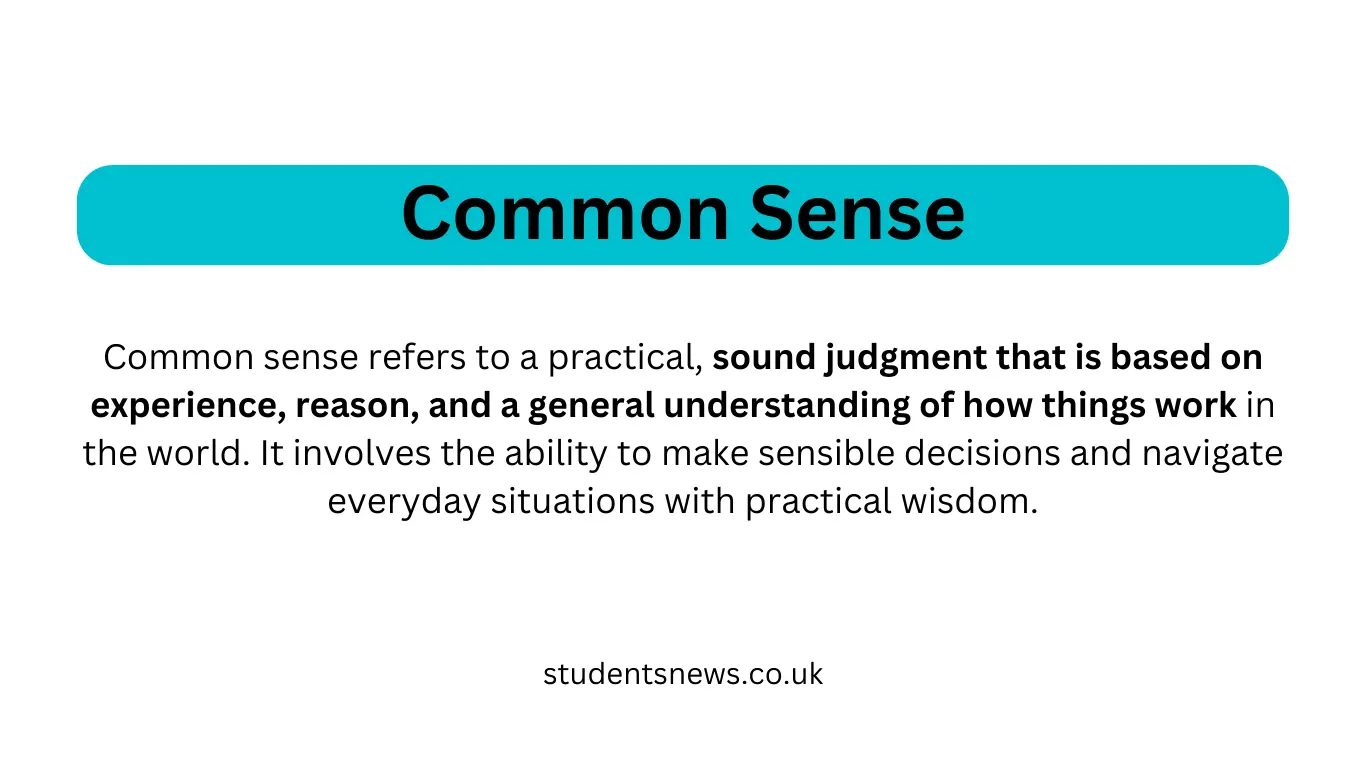In sociology, the concept of “common sense” refers to the taken-for-granted knowledge, beliefs, and understanding that people in a society share about their social world. It is the everyday, practical knowledge that individuals use to navigate social interactions, interpret events, and make sense of the world around them. While common sense is often seen as intuitive and shared by members of a particular culture or society, sociologists study it critically to understand its role in shaping perceptions and behaviors.
Here are some key points about common sense in sociology:
Cultural Variation
Common sense can vary across cultures and societies. What seems like common sense in one cultural context may not be applicable or understood the same way in another. Sociologists examine how cultural norms and values influence the formation of common sense within a specific community.
Social Construction
Sociologists argue that common sense is socially constructed, meaning that it is shaped by social, historical, and cultural factors. It is not necessarily universal or objective but is influenced by the context in which individuals live.
Implicit Assumptions
Common sense often involves implicit assumptions about social life, relationships, and institutions. These assumptions can be deeply ingrained and may go unquestioned by individuals, contributing to the reproduction of social norms and structures.
Power Dynamics
Sociologists are interested in how power dynamics influence common sense. In some cases, common sense may reflect the perspectives of dominant groups in society, reinforcing existing inequalities. Examining whose common sense is considered valid and whose is marginalized helps sociologists understand power relations.
Challenges to Common Sense
Sociologists may challenge common sense beliefs to uncover hidden biases, question stereotypes, and prompt critical reflection. By doing so, they aim to reveal how common sense can perpetuate social inequalities and influence individuals’ perceptions in ways that may not align with empirical evidence.
Socialization
Common sense is often acquired through the socialization process, where individuals learn about their culture, norms, and values. This process occurs through interactions within families, peer groups, schools, and other social institutions.
Role in Social Control
Common sense can play a role in social control by shaping societal expectations and norms. It contributes to the establishment and reinforcement of social order by guiding individuals’ behavior based on shared understandings of what is acceptable or unacceptable. You can read about common sense and psychology here.
In essence, while common sense provides a practical and immediate way for individuals to make sense of their social world, sociologists analyze it to uncover underlying assumptions, cultural influences, and potential biases. By critically examining common sense, sociologists contribute to a deeper understanding of how societies function and how individuals navigate the complexities of social life.
What is Common Sense
Common sense refers to a practical, sound judgment that is based on experience, reason, and a general understanding of how things work in the world. It involves the ability to make sensible decisions and navigate everyday situations with practical wisdom. While it may seem like a straightforward concept, the application of common sense can vary from person to person and is influenced by cultural, social, and individual factors.
What is Sociology
Sociology is the scientific study of society, human social behavior, and the structures and dynamics of social institutions. It is a discipline that seeks to understand how societies are organized, how they function, and how individuals and groups interact within them. Sociologists examine the patterns of social relationships, social interactions, and the influence of social, economic, political, cultural, and historical factors on human behavior.



[…] Also Read: Common Sense and Sociology […]